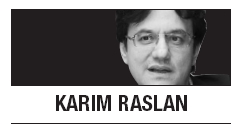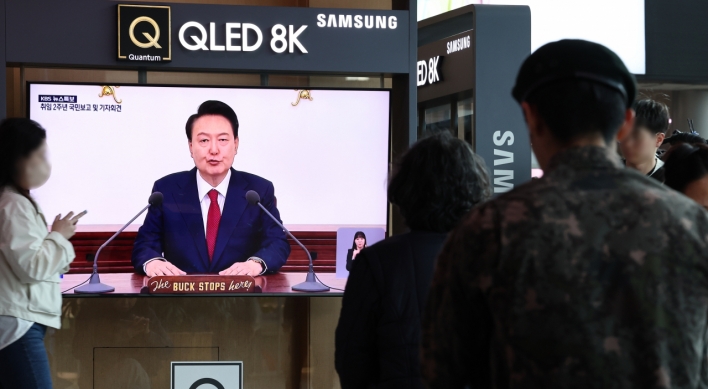Migrants from rural communities have changed the complexion of politics in urban areas, creating a new demographic that political parties should be aware of.
 Last year, on May 5, Malaysia’s urban voters once again upset ruling coalition Barisan Nasional’s carefully prepared ― if unrealistic ― plans.
Last year, on May 5, Malaysia’s urban voters once again upset ruling coalition Barisan Nasional’s carefully prepared ― if unrealistic ― plans.
With leading component party, the United Malays National Organization (Umno) fully expecting a surge to victory in Selangor, the prime minister instead was confronted by a resounding rebuff as the opposition Pakatan Rakyat’s majority in the state legislature mushroomed from 16 seats back in 2008 to 32 seats in the last round.
As urban seats across the country fell to the opposition, many in the ruling elite once again struggled to comprehend the shift in voter sentiment.
How was it that once placid and loyal Barisan supporters had become so ungrateful and demanding? What had happened to the Malays? Had they forgotten Umno’s great history and legacy of national service?
Well, for those who still need some help understanding our country’s political trends, I’d recommend a recently published commentary by a good friend and fellow writer, Pankaj Mishra, in Bloomberg Views called “Urban Villagers Are Asia’s New Force.”
Whilst he focuses on trends sweeping the capital cities of India and Indonesia in particular, his arguments are also relevant for Malaysia.
Pankaj’s thesis is relatively simple: Migrants from rural communities have changed the complexion of politics in urban areas, creating a new demographic. Indeed he dubs them “urban villagers.”
And their numbers are huge. In 2012, about 1.96 billion people or 46 percent of Asia’s total population lived in urban areas ― a significant increase from less than 40 percent in 2002.
Why are they crowding Asia’s cities? They are in search of work, greater opportunities, education and to reunite with their families.
Whatever the case, city life has altered their political thinking.
Had these people stayed in their villages they would have followed local tribal, religious or ethnic affiliations in their loyalties and voting preferences. Moreover, in the villages they would have been more easily controlled by local powerbrokers or landowners.
However, once the villagers are removed from their rural boundaries ― you could even say unleashed from their feudal bonds ― their world view also changes.
Suddenly, clan and culture are no longer dominant.
Needless to say, this “freeing up” of the mind also impacts voting patterns ― witness the drop in support for Umno in the urban areas which could well undermine support in the rural areas as technology brings the country ever closer together.
The urban villagers have tended to see themselves beyond racial and religious stereotypes. They recognise that they’re all equally sidelined and neglected as scepticism towards established leaders mounts.
With corruption and mismanagement all around them, urban voters consider good governance, transparency and accountability as important factors in their lives since access to decent government services can lead to good schooling and housing, hence a better future.
Essentially, once they are separated from their villages and the conservative mindset that locks them into a subservient position, elected representatives are merely seen as service providers (just like handphone operators) whose track record is all-important, and this is especially true with the young.
Pankaj hones in on Arvind Kejriwal, a former engineer turned politician from the upstart “Common Man” Party.
Upsetting a long-term Congress Party incumbent in local New Delhi polls, Kejriwal secured the chief ministership of the capital, shaking up India’s political establishment.
The Common Man Party now has 10 million members and will field at least 73 parliamentary candidates in India’s next general election.
The unprecedented support for Kejriwal and his party is attributable to public dissatisfaction with the previous Congress Party administration’s corruption, high-handedness and inefficiency ― quite similar to how events shaped up in Jakarta back in September 2012 when Joko Widodo shot to power.
Change is no longer a political taboo ― as Asia continues to urbanise, only those who perform will be rewarded. This must be welcomed as it keeps politicians on their toes.
For us in Malaysia, this can only be a good thing. Change is inevitable and Umno, in particular, must and should change if it wishes to win back the support of urban villagers.
By Karim Raslan
Karim Raslan is a columnist for The Star. ― Ed.
(The Star/Asia News Network)
 Last year, on May 5, Malaysia’s urban voters once again upset ruling coalition Barisan Nasional’s carefully prepared ― if unrealistic ― plans.
Last year, on May 5, Malaysia’s urban voters once again upset ruling coalition Barisan Nasional’s carefully prepared ― if unrealistic ― plans.With leading component party, the United Malays National Organization (Umno) fully expecting a surge to victory in Selangor, the prime minister instead was confronted by a resounding rebuff as the opposition Pakatan Rakyat’s majority in the state legislature mushroomed from 16 seats back in 2008 to 32 seats in the last round.
As urban seats across the country fell to the opposition, many in the ruling elite once again struggled to comprehend the shift in voter sentiment.
How was it that once placid and loyal Barisan supporters had become so ungrateful and demanding? What had happened to the Malays? Had they forgotten Umno’s great history and legacy of national service?
Well, for those who still need some help understanding our country’s political trends, I’d recommend a recently published commentary by a good friend and fellow writer, Pankaj Mishra, in Bloomberg Views called “Urban Villagers Are Asia’s New Force.”
Whilst he focuses on trends sweeping the capital cities of India and Indonesia in particular, his arguments are also relevant for Malaysia.
Pankaj’s thesis is relatively simple: Migrants from rural communities have changed the complexion of politics in urban areas, creating a new demographic. Indeed he dubs them “urban villagers.”
And their numbers are huge. In 2012, about 1.96 billion people or 46 percent of Asia’s total population lived in urban areas ― a significant increase from less than 40 percent in 2002.
Why are they crowding Asia’s cities? They are in search of work, greater opportunities, education and to reunite with their families.
Whatever the case, city life has altered their political thinking.
Had these people stayed in their villages they would have followed local tribal, religious or ethnic affiliations in their loyalties and voting preferences. Moreover, in the villages they would have been more easily controlled by local powerbrokers or landowners.
However, once the villagers are removed from their rural boundaries ― you could even say unleashed from their feudal bonds ― their world view also changes.
Suddenly, clan and culture are no longer dominant.
Needless to say, this “freeing up” of the mind also impacts voting patterns ― witness the drop in support for Umno in the urban areas which could well undermine support in the rural areas as technology brings the country ever closer together.
The urban villagers have tended to see themselves beyond racial and religious stereotypes. They recognise that they’re all equally sidelined and neglected as scepticism towards established leaders mounts.
With corruption and mismanagement all around them, urban voters consider good governance, transparency and accountability as important factors in their lives since access to decent government services can lead to good schooling and housing, hence a better future.
Essentially, once they are separated from their villages and the conservative mindset that locks them into a subservient position, elected representatives are merely seen as service providers (just like handphone operators) whose track record is all-important, and this is especially true with the young.
Pankaj hones in on Arvind Kejriwal, a former engineer turned politician from the upstart “Common Man” Party.
Upsetting a long-term Congress Party incumbent in local New Delhi polls, Kejriwal secured the chief ministership of the capital, shaking up India’s political establishment.
The Common Man Party now has 10 million members and will field at least 73 parliamentary candidates in India’s next general election.
The unprecedented support for Kejriwal and his party is attributable to public dissatisfaction with the previous Congress Party administration’s corruption, high-handedness and inefficiency ― quite similar to how events shaped up in Jakarta back in September 2012 when Joko Widodo shot to power.
Change is no longer a political taboo ― as Asia continues to urbanise, only those who perform will be rewarded. This must be welcomed as it keeps politicians on their toes.
For us in Malaysia, this can only be a good thing. Change is inevitable and Umno, in particular, must and should change if it wishes to win back the support of urban villagers.
By Karim Raslan
Karim Raslan is a columnist for The Star. ― Ed.
(The Star/Asia News Network)
-
Articles by Korea Herald








![[KH Explains] Can tech firms' AI alliances take on Nvidia?](http://res.heraldm.com/phpwas/restmb_idxmake.php?idx=644&simg=/content/image/2024/05/07/20240507050619_0.jpg&u=)









![[K-pop’s dilemma] Time, profit pressures work against originality](http://res.heraldm.com/phpwas/restmb_idxmake.php?idx=652&simg=/content/image/2024/05/08/20240508050705_0.jpg&u=20240508171126)
![[Today’s K-pop] NCT Dream to drop pre-release from 2nd Japan single](http://res.heraldm.com/phpwas/restmb_idxmake.php?idx=642&simg=/content/image/2024/05/08/20240508050725_0.jpg&u=)